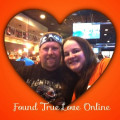Speed Meeting, Speed Dating, Speed Networking. What Is Speed Meeting?
What do local governments in the UK, a Jewish Rabbi, Chinese business people, a medical school, and a social club all have in common?
They have all used "speed meeting" (with variants known as "speed dating" and "speed networking") as a way for people to meet and get to know each other –- if at first ever so briefly –- for possible future follow up.
It can work for any group.
In the UK, the Local Government Association developed "political speed dating" not as a dating event, but a method set up by local councils to introduce constituents to their representatives.
Business groups use speed networking as a way to host networking events that make mixing and meeting plenty of potential business contacts easy and worthwhile.

The New York Times Reports: Variant of Speed Dating Used to Screen Future Doctors
Virginia Tech Carilion medical school implemented an admission procedure designed to identify applicants with better people skills that is an "admissions equivalent of speed-dating." The school administered 9 short interviews, each with a different interviewer and a different topic instead of relying only on grades, test scores, and single more in-depth interviews.
There were no right or wrong answers to the questions that were the basis of the mini-interviews, rather they were intended to reveal how the applicant works in teams and handles the personal side of doctoring, not just academic expertise.
Even a local church is considering using a speed meeting variant of speed dating as a way to develop more connections among members within a large congregation.
Speed meeting had its start as speed dating when a Jewish rabbi thought up the concept, which he trademarked as “SpeedDating”™, as a good way for young Jewish men and women to meet enough members of the opposite sex to find their true mates.
The first speed dating reportedly took place in 1998 in – where else? – California. From there it flourished, along with its non-romantic counterparts, around the world.
The Set-Up
Although there are variations on the model, the basic idea is to form two concentric circles of people (mix them up so they aren’t sitting across from people they know), and have pairs talk on a given topic with a time limit, say 3 to 8 minutes.
That’s long enough to break the ice, learn a little about the other person, enabling future conversation to develop. “Hey, I remember at the speed meeting you said you liked jazz and country music….”
You get the idea.
A Bit Like Musical Chairs, But Everyone Wins
At the end of the allotted time, a moderator gives a signal, and round-robin fashion, the inner circle moves one seat (or two or three just to keep things interesting) and everyone meets a new person. The moderator also introduces the question or topic for each interaction, which usually changes for every encounter to keep the conversations fresh and spontaneous.
This can go on for an hour or more, with each person having the chance for a quick chat with up to 10 randomly selected new people. On the chance that some of the pairs already know each other, that’s okay too, they can just learn something about the person they didn't know before.
Some organizers like to use tables for two or even use small groups rather than one on one. Some settle on a three-minutes limit, others – especially for small groups – go for longer periods up to 15 minutes. The point is, the model is flexible and easy to adapt to the wants and needs of a particular group.
What do you talk about?
In speed networking, typically participants take turns giving a brief summary of business history and goals, a kind of “elevator speech”. Business cards may be exchanged; even arrangements for a follow-up call or meeting may be made.
In speed meeting, however, the topics tend to be more social. The objective is to have a pressure-free icebreaker, not deep, probing, comfort-zone leaving inquiries. Most people, when they first meet, exchange at a fairly superficial, neutral level, giving each other the opportunity to share and learn just enough about another person to engage in conversation the next time they meet without necessarily making any further commitment.
Ideas for topics range all over the place and depend on the purpose of the group. Some general questions might be:
1. Find 10 beliefs, preferences, or activities you both have in common.
2. Name 5 of your favorite books and describe a little about each. (Also, you can keep going with this: 5 of your favorite movies, 5 of your favorite foods, 5 of anything.)
3. Share your experience from a trip you recently took.
4. Tell the other person about a country you haven’t visited but would like to and why.
And so forth. In a church setting questions might also include:
1. What caused you to first visit our church?
2. What aspects of our church are most important to you?
3. Tell the other person about one or more activities you have participated in at the church that were particularly enjoyable or meaningful.
*******************************************************************************************

Follow Up
As a follow-up, facilitators can post a video or slide show of the speed meeting event on the organization website, which will serve to remind attendees of the event and the people they met. Also, it’s smart to survey or interview attendees, get feedback and share it to encourage more participation at similar events in the future.
Check out other interesting hubs on related topics....
- Cool Conversation Starter Tips for Every Situation |...
Have you ever wanted to get to know someone, but you didn't know how to start the conversation? A good conversation starter is like starting a car engine. If you dont know how to start the engine, you will... - 50 Ways to Meet people and Make New Friends
Skills needed for making and keeping friends Show others that you are a good listener by restating their comments in another manner. Communicate enthusiasm and excitement about things and life in general... - Best Professional Social Networking Sites for Busine...
Best Online Social Networking Sites for Entrepreneurs As an entrepreneur (whether online or offline), it is absolutely crucial for you to have an online presence. It is through this presence that you make...







